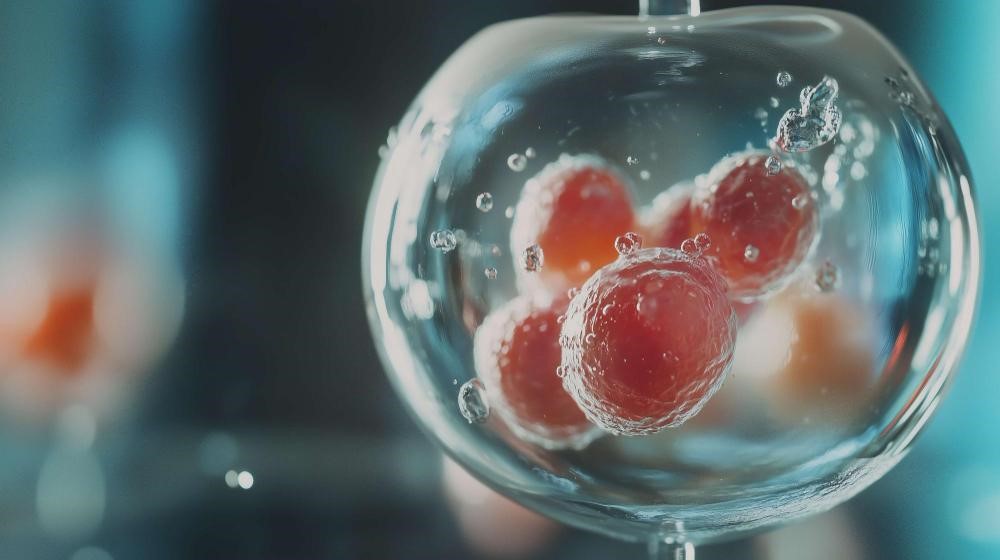In the case of IVF treatment in Delhi, the success of the process depends on a single significant step, which is egg selection. This process is also known as the hunting process, and it is the one that defines the quality of embryos that could be formed and, finally, the success of the pregnancy. However, what actually occurs in this stage, and how do embryologists determine the egg with the most potential? We shall explore more into the science and accuracy of it.
Understanding the Egg Selection Process in IVF
IVF (In Vitro Fertilisation) is a procedure that involves the removal of eggs from the ovaries of a woman following a period of controlled stimulation. In the process, fertility specialists use hormonal medications to ensure that multiple follicles develop simultaneously. Not all follicles have an egg, and not all eggs are the same. It starts with hunting there.
This is aimed at getting mature and healthy eggs that can undergo fertilisation and embryonic growth. This is a crucial step since it is only the high-quality eggs that enhance the chances of successful implantation and pregnancy.
The Steps Behind Egg Selection
1. Ovarian Monitoring and Stimulation.
In IVF therapy in Delhi, the women are under hormonal stimulation that the reproductive endocrinologists tailor. Ultrasounds and blood tests are taken regularly to monitor the growth of follicles and the level of hormones in the body to know when to retrieve the eggs.
This step is crucial because the eggs may be retrieved at the wrong time, and this may influence their maturity and quality.
2. Egg Retrieval (Oocyte Aspiration)
An egg retrieval procedure under mild sedation is done once the follicles have attained the appropriate size. Under ultrasound, a fine needle is inserted to suck out the follicular fluid, which holds the eggs. It is painless and lasts approximately 20-30 minutes for most patients.
The fluid is immediately given to the embryology lab to be examined.
3. Microscopic Recognition -The Hunting Stage
That is where embryologists come in. Embryologists under a high-resolution microscope hunt the eggs among the follicular fluid – this is well termed the hunting process. It takes accuracy, skills, and a stable hand.
Embryologists isolate the eggs and separate them from the other cells and debris, examining them for their level of maturity:
- Germinal Vesicle (GV): Unripe egg.
- Metaphase I (MI): Half-grown.
- Metaphase II (MII): Ready and fit to be fertilised.
Fertilisation of only MII-stage eggs is done either by conventional IVF or by ICSI (Intracytoplasmic Sperm Injection).
4. Evaluating Egg Quality
In addition to maturity, embryologists test the morphology of the egg, including egg shape, cytoplasmic clarity, and polar body. Although there might be slight abnormalities that do not necessarily affect the results, seriously deformed eggs are avoided.
Why Egg Selection Is Critical for IVF Success?
The egg is the source of half of the genetic material in the embryo. With the best sperm, a poor egg will result in unsuccessful fertilisation or malformed embryo formation. With correct selection, it can be ensured that:
- Higher fertilisation rates
- Better embryo quality
- Higher rates of implantation.
- Reduced miscarriage risk
To summarize, it all starts with the selection of the correct eggs in IVF, which is an activity that is guided by science, experience, and accuracy.
Advanced Technologies in Egg Selection
The IVF labs in Delhi, including Sehgal Nursing Home, have high-tech equipment to increase precision in egg choice. Techniques such as:
- Real-time imaging of embryo development by time-lapse.
- Spindle visibility by polarised light microscopy.
- Quality grading with the help of artificial intelligence.
The innovations assist embryologists in making evidence-based decisions that enhance IVF and patient safety.
Suggest to Read :- Which IVF Clinic Has The Highest Success Rate In Delhi?
Final Thoughts
The unsung hero of IV egg selection or the hunting process. It is a combination of science, time, and human skill that would make or break an IVF cycle. We are working at Sehgal Nursing Home, where we are planning to use technology and care to bring every IVF process a step nearer to parenthood.
When you are going to have an IVF done in Delhi, you must be sure you are in a centre that values accuracy and quality at every step – starting with the first egg to the last heartbeat.
FAQs
1. What is the typical number of eggs that are retrieved in the IVF?
It is based on the age of the woman and ovarian reaction. Retrieved eggs per cycle are usually 8-15, although not all of them will be mature enough to fertilise.
2. Is there a decrease in the quality of the eggs with age?
Yes. Women who are over 35 years tend to have low egg quality because of chromosomal abnormalities. Timely IVF and early assessment can be used to enhance the results.
3. Does selecting eggs enhance the pregnancy rates?
Absolutely. The use of mature and healthy eggs has the benefit of ensuring high implantation and pregnancy success rates due to the formation of healthy embryos.



